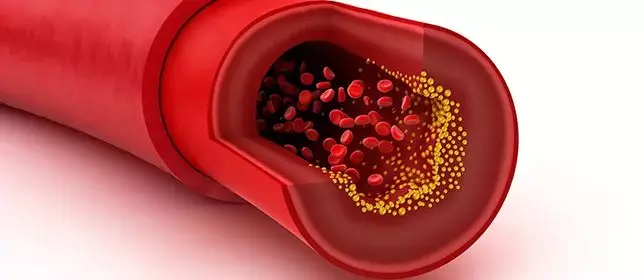- Home
- Medical news & Guidelines
- Anesthesiology
- Cardiology and CTVS
- Critical Care
- Dentistry
- Dermatology
- Diabetes and Endocrinology
- ENT
- Gastroenterology
- Medicine
- Nephrology
- Neurology
- Obstretics-Gynaecology
- Oncology
- Ophthalmology
- Orthopaedics
- Pediatrics-Neonatology
- Psychiatry
- Pulmonology
- Radiology
- Surgery
- Urology
- Laboratory Medicine
- Diet
- Nursing
- Paramedical
- Physiotherapy
- Health news
- Fact Check
- Bone Health Fact Check
- Brain Health Fact Check
- Cancer Related Fact Check
- Child Care Fact Check
- Dental and oral health fact check
- Diabetes and metabolic health fact check
- Diet and Nutrition Fact Check
- Eye and ENT Care Fact Check
- Fitness fact check
- Gut health fact check
- Heart health fact check
- Kidney health fact check
- Medical education fact check
- Men's health fact check
- Respiratory fact check
- Skin and hair care fact check
- Vaccine and Immunization fact check
- Women's health fact check
- AYUSH
- State News
- Andaman and Nicobar Islands
- Andhra Pradesh
- Arunachal Pradesh
- Assam
- Bihar
- Chandigarh
- Chattisgarh
- Dadra and Nagar Haveli
- Daman and Diu
- Delhi
- Goa
- Gujarat
- Haryana
- Himachal Pradesh
- Jammu & Kashmir
- Jharkhand
- Karnataka
- Kerala
- Ladakh
- Lakshadweep
- Madhya Pradesh
- Maharashtra
- Manipur
- Meghalaya
- Mizoram
- Nagaland
- Odisha
- Puducherry
- Punjab
- Rajasthan
- Sikkim
- Tamil Nadu
- Telangana
- Tripura
- Uttar Pradesh
- Uttrakhand
- West Bengal
- Medical Education
- Industry
Exposure to toxic metals tied to atherosclerosis risk: Study

Spain: A recent study has reported that exposure to toxic metals, including cadmium and titanium, arsenic among employees at a car assembly plant is related to subclinical level of atherosclerosis. The risk was found to be greatest among older employees, men and those who smoked at any time during their life. The study appears in the journal Arteriosclerosis, Thrombosis, and Vascular Biology.
The results supported cadmium and arsenic and identified titanium and potentially antimony as risk factors for atherosclerosis. In individuals without clinical disease, exposure reduction and mitigation interventions of these metals may reduce cardiovascular risk.
Previous studies that have evaluated the association of metals with subclinical atherosclerosis are limited mostly to carotid arteries, Maria Tellez-Plaza, Department of Preventive Medicine and Microbiology, Autonomous University of Madrid, Spain, and colleagues therefore aimed to assess individual and joint associations of nonessential metals exposure with subclinical atherosclerosis in 3 vascular territories.
The study included one thousand eight hundred seventy-three participants from the Aragon Workers Health Study. They had urinary determinations of inorganic arsenic species, barium, cadmium, chromium, antimony, titanium, uranium, vanadium, and tungsten. The presence of plaque in carotid and femoral arteries was determined by ultrasound. Coronary Agatston calcium score ≥1 was determined by computed tomography scan.
Based on the study, the researchers found the following:
- Median arsenic, barium, cadmium, chromium, antimony, titanium, uranium, vanadium, and tungsten levels were 1.83, 1.98, 0.27, 1.18, 0.05, 9.8, 0.03, 0.66, and 0.23 μg/g creatinine, respectively.
- The adjusted odds ratio for subclinical atherosclerosis presence in at least one territory was 1.25 for arsenic, 1.67 for cadmium, and 1.26 for titanium.
- These associations were driven by arsenic and cadmium in carotid, cadmium and titanium in femoral, and titanium in coronary territories and mostly remained after additional adjustment for the other relevant metals.
- Titanium, cadmium, and antimony also showed positive associations with alternative definitions of increased coronary calcium.
- Bayesian Kernel Machine Regression analysis simultaneously evaluating metal associations suggested an interaction between arsenic and the joint cadmium-titanium exposure.
"Our results support arsenic and cadmium and identify titanium and potentially antimony as atherosclerosis risk factors," wrote the authors. "Exposure reduction and mitigation interventions of these metals may decrease cardiovascular risk in individuals without clinical disease."
Reference:
The study titled, "Toxic Metals and Subclinical Atherosclerosis in Carotid, Femoral, and Coronary Vascular Territories: The Aragon Workers Health Study," was published in the journal Arteriosclerosis, Thrombosis, and Vascular Biology.
Dr Kamal Kant Kohli-MBBS, DTCD- a chest specialist with more than 30 years of practice and a flair for writing clinical articles, Dr Kamal Kant Kohli joined Medical Dialogues as a Chief Editor of Medical News. Besides writing articles, as an editor, he proofreads and verifies all the medical content published on Medical Dialogues including those coming from journals, studies,medical conferences,guidelines etc. Email: drkohli@medicaldialogues.in. Contact no. 011-43720751


